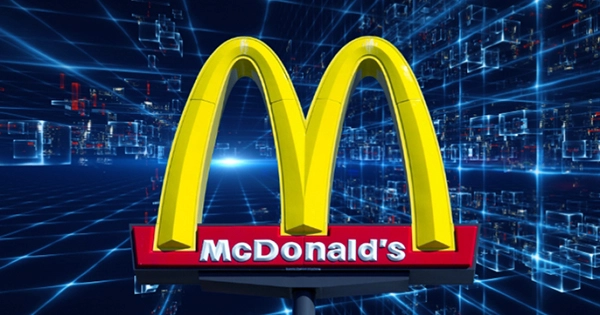Do you want some NFT fries to go with it? McDonald’s appears to be making inroads into the metaverse, having registered ten trademarks in the virtual realm. McDonald’s recently filed ten trademark applications, according to Josh Gerben, a trademark lawyer and founder of Gerben Intellectual Property, indicating that the fast-food giant is interested in opening a “virtual restaurant featuring actual and virtual goods,” as well as a “virtual restaurant online featuring home delivery.”
McDonald’s wanted to expand its own intellectual property, such as food names and visual branding, to “virtual food and beverage goods,” such as “downloadable multimedia files containing artwork, text, audio and video files, and non-fungible tokens [NFTs], among other things.” McDonald’s could also host other entertainment events in the metaverse, such as music concerts, according to trademark applications.
It’s unclear how any of this will function, as it is with many components of the metaverse — an all-connected virtual reality environment in which people may interact with other users and the artificial world around them. What’s the point of a virtual Big Mac, at the risk of utterly missing the point? Nonetheless, it’s evident that McDonald’s does not want to be left behind on the metaverse bandwagon. McDonald’s held a competition in November 2021 to give away ten McRib NFTs to commemorate the popular sandwich’s 40th anniversary.
Other large corporations, like as Nike and Coca-Cola, have shown an interest in “entering the metaverse” in some way. “It’s very evident this is coming when you see this critical mass of huge firms filing so many new trademark applications,” Gerben told Forbes. “I believe any brand you can think of will file these filings within the next 12 months,” Gerben said.
“I don’t think anyone wants to be the next Blockbuster by ignoring a new technology that is on the horizon.” McDonald’s is the latest large firm to file trademark applications for virtual goods, services, and even virtual restaurants and cafés, following in the footsteps of Meta, Facebook’s parent company, and its envisioned virtual world, the metaverse.
You may see the metaverse as a collection of interconnected virtual worlds, similar to the internet but accessible through virtual reality. This is largely right, but the metaverse also has a key, albeit little mysterious, aspect that will distinguish it from today’s internet: the blockchain. Web 1.0 was the information superhighway of connected computers and servers that you could search, explore, and inhabit, usually through the platform of a centralized firm — for example, AOL, Yahoo, Microsoft, and Google.
Web 2.0 was defined by social networking sites, blogging, and the monetization of user data for advertising by centralized gatekeepers to “free” social media platforms like as Facebook, SnapChat, Twitter, and TikTok around the turn of the millennium. Web 3.0 will serve as the metaverse’s foundation. It will be made up of blockchain-enabled decentralized applications that will support a user-owned cryptocurrency and data economy. Decentralized? Blockchain? Crypto-assets? We can explain the technology that will enable the metaverse as researchers who study social media and media technology.
















